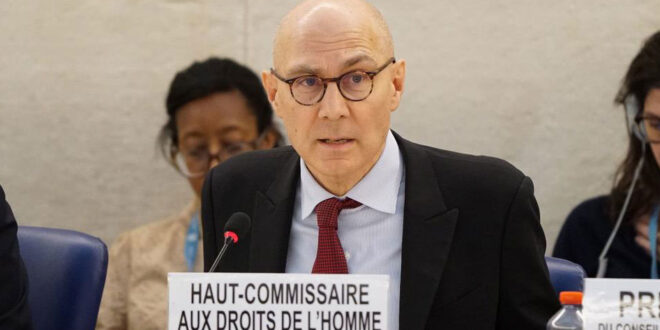SANA NEWS - 7/2/2025 8:06:20 AM - GMT (+2 )


Geneva, SANA- The United Nations High Commissioner for Human Rights, Volker Türk, has called for urgent action to protect people from the chaos of climate change, safeguard their future, and manage natural resources in ways that respect both human rights and the environment.
According to the UN News website, Türk made these remarks during a panel discussion on the impacts of climate change, held as part of the 59th session of the Human Rights Council in Geneva. He emphasized that “the climate crisis is a human rights crisis,” and stressed the need for a roadmap to help reimagine societies, economies, and policies in equitable and sustainable ways.
Türk noted that human rights standards serve as a foundation and compass for a just transition to renewable energy sources. He warned that “if we fail to protect people’s lives, health, jobs, and future opportunities, the transition away from fossil fuels will only deepen injustice and inequality in our world.”
He urged governments and corporations to take necessary measures to ensure that no one is left behind in this early phase of the global shift to renewable energy.
The right to decent work also featured prominently in the Council’s session. Moustapha Kamal Gueye, a senior official at the International Labour Organization, stated that “the human right to decent work is currently facing a fundamental challenge due to climate change.”
Gueye warned that if current climate trends continue, 80 million full-time jobs could disappear by 2030, and over 70% of the global workforce—approximately 2.4 billion workers—will be exposed to excessive heat during work at some point.
He also highlighted that transitioning to low-carbon economies could generate over 100 million new jobs by 2030, affirming that the global climate agenda is fundamentally a human rights issue.
“The ambitions of nations and the international community cannot be reduced to numerical targets and indicators,” he concluded. “At its core, this agenda must be centered on people.”
Nawal /Manar Salameh
read more




